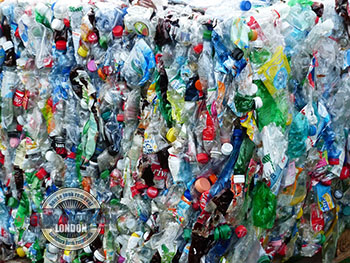 Below are listed stats and figures on various types of waste and their impact on the environment. These highlight the importance of effective rubbish removal and separation of recyclable materials from general waste stream as well as the fact that public awareness and education in terms of efficient resource use are highly important in today’s world.
Below are listed stats and figures on various types of waste and their impact on the environment. These highlight the importance of effective rubbish removal and separation of recyclable materials from general waste stream as well as the fact that public awareness and education in terms of efficient resource use are highly important in today’s world.
Plastic
- All types of plastic are recyclable;
- Recycling plastic saves 8% of the world’s oil consumption, reduces the amount of solid waste ending up in landfills, and greatly reduces the amount of greenhouse gases like CO2 and NO.
- The world’s annual consumption and use of plastics has increased from about 5 million tons (1950) to almost 100 million tons today.
- One ton of plastics makes up 20 thousand 2 litre drink bottles and 120 thousand plastic shopping bags, all of which can and should be recycled;
- The UK generates about five million tons of plastic waste every year;
- Currently Great Britain recycles only about 20 or so percent of its plastic waste (annually), while other EU countries like Germany, recycle a minimum of 40 percent of their annual plastic waste.
- Plastic accounts for 9% of the annual household waste in UK.
- Using recycled polyethylene for making of shopping bags reduced production energy consumption by 2/3, reduces poison and greenhouses gases by at least half, reduces water waste by at least 90%,
- Nearly 2 tons of crude oil are saved when a ton of plastic is made of recycled polyethylene;
- Over 50% of all rubbish found on UK beaches in 2010 was plastic, in 1994 there was 120% less plastic waste found in British beaches.
- Three quarters of all postconsumer plastic waste ends up in landfills across Britain.
- One million tonnes of plastic waste is generated in the UK annually (1 million tons is approximately 45 billion individual plastic items);
- Despite the 5p cost of a plastic bag, supermarkets in Britain still give out 4.5 billion plastic bags.
- Incinerating 10 thousand tons of rubbish creates 1 job, landfilling 10 thousand tons of rubbish creates 6 jobs, recycling 10 thousand tons of waste creates 36 jobs.
- If UK did sufficient plastic recycling, this would save 684 thousand tons of greenhouse gases, equivalent to taking 216 thousand vehicles off the road.
Glass
- Each household in UK uses an average of 500 glass jars and bottles every year;
- The largest glass furnace in Britain can produce 1 million glass bottles and jars per day;
- Glass is 100% recyclable, and can be used over and over again;
- Glass waste which ends up in landfills will never decompose;
- Recycling 1 glass bottle will save the energy it takes to power a desktop computer for 20 minutes;
Paper
- Producing paper from recycled sources takes 70% less energy than doing so from virgin sources;
- 1 ton of recycled paper saves: 17 trees, 3 cubic yards of landfill space, 7 thousand gallons of water, 4200 KwH of electricity, 390 gallons of crude oil;
- Recycled paper generates 73% less air pollution than the same amount of paper made of raw materials;
- 5 million tons of paper and cardboard are used in the UK every year;
- The average person in Britain, goes through 38kg of newspaper annually;
- It takes 24 trees to make 1 ton of newspaper;
